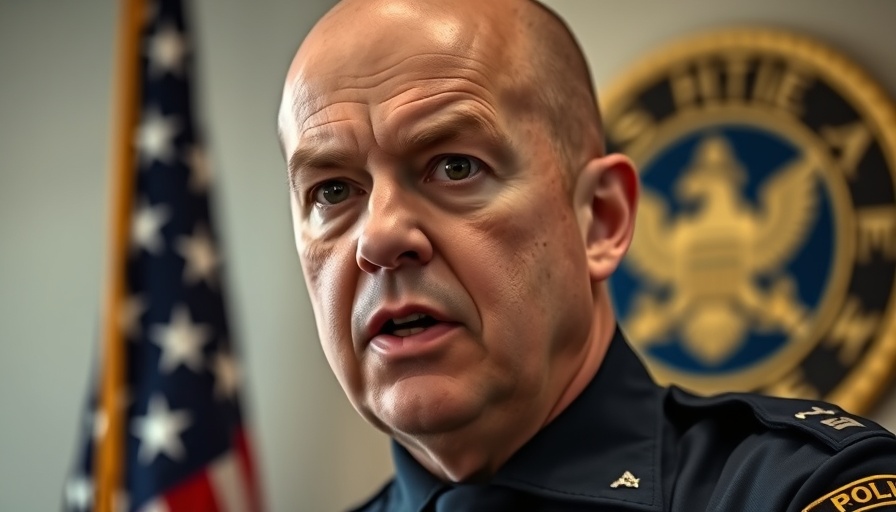
Understanding the Critical Intervention in Minnesota Shooting
In a striking example of proactive law enforcement, Brooklyn Park Police Chief Mark Bruley revealed how swift police action likely thwarted what could have been a devastating escalation of violence. The case centers on Vance Boelter, a suspect charged with the murder of Minnesota state Representative Melissa Hortman and her husband, Mark Hortman. This incident emphasizes the importance of timely police interventions, particularly in dangerous situations involving public figures.
Strategic Police Response: Preventing a Potential Crisis
Testifying in a press conference, Chief Bruley elaborated on the moments surrounding the police response to Hortman's residence after an initial shooting incident was reported at the home of state Senator John Hoffman. Drawing from the insights shared at the press conference, the quick actions of the officers played a pivotal role in averting further bloodshed. Had they not intervened when they did, the ongoing situation involving Boelter could have culminated in an even greater tragedy.
The Importance of Crisis Management Protocols
This scenario highlights the necessity for law enforcement agencies to develop robust crisis management strategies. Equipped with advanced technology, including real-time crime analytics tools and surveillance systems, police departments can better prioritize and respond to threats. Studies have shown that agency readiness in crisis situations not only helps protect lives but also builds community trust. Effective communication from the police department during incidents can mitigate public fear and foster a supportive environment.
Building Community Trust through Transparency
The aftermath of the shooting has reignited conversations about police accountability and community relations. Transparency in law enforcement practices, amplified through strategic public engagement efforts, is paramount in rebuilding trust. Initiatives that involve community outreach can provide critical insights into the needs and concerns of residents, fostering a two-way dialogue between law enforcement and the communities they serve.
Legal Implications and Future Policy Reforms
As police reform discussions continue to evolve, this case serves as a poignant reminder of the complexities surrounding law enforcement in high-stakes situations. The federal charges against Boelter, including stalking and murder, reflect ongoing challenges within the legal system regarding how cases of violence against lawmakers are handled. Policymakers now face the responsibility of ensuring that laws adequately protect public officials while also addressing community safety and crime prevention strategies.
What This Means for Future Policing Strategies
Going forward, collaborations that include law enforcement, community organizations, and legislative bodies are essential in creating comprehensive crime prevention strategies. The integration of modern policing technologies such as AI-driven policing insights and crime technology can lead to a transformative approach in crime analysis and response efforts. Efforts to enhance officer wellness and support programs will also ensure that law enforcement can operate effectively, even under immense pressure.
The recent incident acts as both a cautionary tale and a call to action for law enforcement agencies to embrace a multifaceted approach to policing. By investing in officer training and technology, fostering community partnerships, and enhancing public awareness, agencies can strive towards a system that prioritizes safety alongside accountability. This balance is essential not only for current law enforcement practices but also to ensure the long-term trust and safety of the communities they serve.
 Add Row
Add Row  Add
Add 

 Add Element
Add Element 


Write A Comment